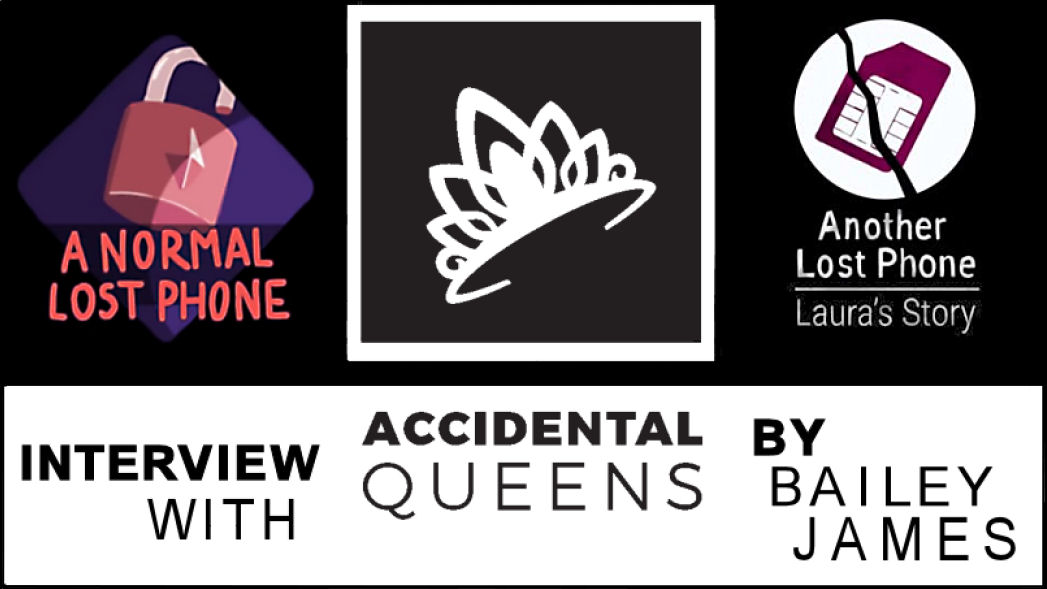Interview with Accidental Queens Studio, Creators of Another Lost Phone: Laura’s Story
JA’s Bailey James has reviewed both Lost Phone games; now she chats with the developers
Most of us can identify with the feeling of getting lost in our phones. It’s one of the marvels of the modern era that we carry a whole world in our pockets – we have all our friends and most of human history’s knowledge available at our fingertips.
If you’ve played a game by the French development studio Accidental Queens, you’ll know the feeling of getting lost in someone else’s phone. They’ve made two beautiful games that take place within the private digital realm of a character’s phone, and have told compelling and immediate stories by creatively using these fictional people’s texts, emails, Internet posts, and more to explore their lives.
I recently had the pleasure of reviewing Accidental Queens’ newest game, Another Lost Phone: Laura’s Story, followed by the even greater pleasure of getting to ask the studio some questions about how they create their stunning games.
JustAdventure: Thanks so much for taking the time to talk to us! First off, one of the most unique and exciting things about both A Normal Lost Phone and Another Lost Phone: Laura’s Story is the method of storytelling – learning about a character by exploring that person’s device. How did you come up with this idea? Did your original story come first, or did the format seem promising and you devised a story to go with it?
Accidental Queens: For Another Lost Phone, we took a serious topic that we think is quite overlooked and tried to raise awareness about it, just as we did with our first title A Normal Lost Phone. Diving into Laura’s phone – the main character of Another Lost Phone – is a way to peek through her daily life, her interests, her troubles…just like any other person’s. Laura’s story could be your story, or the story of someone you know, and we think that’s what makes it powerful and important.
JA: When you’re creating a story that’s told through multiple channels – texts, emails, notes, calendar appointments – how do you begin that writing process? How do you conceptualize how the story will unfold?
AQ: In order to make the characters believable, we’ve written individual “character sheets” which describe their traits, personal history, taste, hobbies, personality, etc. We’ve created relationships between them to make it interesting and real. Then we develop the main character’s story by building a timeline of her life. The calendar app in the game, for instance, is a simplified version of a bigger document we’ve made to build Laura’s daily life over several months, before and after she has lost her phone. It showed what she did, who she was with, and what happened at different moments, allowing us to produce the content of her exchanges with others through the different communication apps.
From a player’s perspective the whole story seems scattered through multiple channels, but the main thread is actually linear. You won’t find a piece of information about the story we did not intend to provide you at any moment of your progression in the game. It’s like exploring a house, room after room, where each space contains both new information about the owner, and the key to the next room.
JA: Something I found really smart about using a phone interface as the control scheme for a game is that there’s really no need for any kind of tutorial – people who have used a smartphone can instinctually navigate a new interface like yours even if they’ve never seen it before. Does that help you to tell this story in an immersive way? Are there challenges it presents in making the game?
AQ: Obviously, phone interfaces are familiar to everyone who owns a smartphone and it really helps to get into it more quickly and easily. The immersion is already in action… A phone in itself is already a beautiful treasure chest of personal information that tells not only the owner’s story, but many stories. So far it has been more of an inspiration to us than a real constraint to create an engaging narrative.
JA: Your puzzles, like password-protected accounts and secure apps, are some of the most organic I’ve ever seen in a game since they resemble the real ways we secure our own personal information (and they’re vulnerable to many of the security flaws we’re guilty of too!). Do you feel limited in the kind of puzzles you can create? Was it more challenging the second time around to come up with new ways of challenging players?
AQ: Yes, definitely, it puts some limitations on the kind of puzzles or riddles we could have designed. For the second title we still had plenty of ideas, but we had to keep only few of them to stay coherent with the topic and the story we wanted to explore. If we had to make a third “Lost Phone” title, it would be expected to have another password puzzle with numbers, but what could be different is the way you could get this information. It’s not only about the form of the puzzle, but the path and the thinking you take to solve it that are the most interesting.
JA: I would describe both of your games so far as having a social awareness element – they deal with serious and important topics like gender identity and difficult relationships. What are you hoping players will come away from your games thinking or feeling after seeing the inner lives of people dealing with these issues?
AQ: Revealing the whole theme of each game would definitely spoil part of the experience, so it’s hard to answer extensively. Some important questions are raised regarding relationships in the digital age, the feeling of isolation and its contrast with today’s over-connectedness, and the porous barrier between professional and personal interactions. Both games were designed and written with the help of organizations and professionals from a specific subject. Our goal is to shed light on a subject while providing key elements to discover or understand the core theme that players may or may not be familiar with.
We think it’s important to tackle social issues because games are a powerful medium today, and will become the basis of shared culture and references in tomorrow’s society. Whether we want it or not, almost any game teaches something to the players: what today’s world is made of and, in parts, how its creators see the world. In order for our society as a whole to move towards something better, our games must never underestimate the impact that they can – even inadvertently – have. Additionally, it’s important that at least some of them try to actively send a better message and share some form of “lesson” to the current and future generations of players.
So not only do we think it’s important to tackle these issues, we also think that it’s vital to realize that many games give a certain point of view on these issues – and this point of view should be harmless at worst, and extremely positive at best.
JA: What is Accidental Queens working on now? Will anyone else be losing a phone sometime soon?
AQ: While there are still promising paths to explore with the concept of a “Lost Phone” game, there are also more great ideas for innovative narrative games as a whole. We started this journey with the will to explore new forms of storytelling, and delivering powerful messages through this medium, and we intend to keep doing it! We are currently in a pre-production stage for a brand-new game project. What we can tell you so far is that it will be different than our two previous titles, but it will still be very immersive, accessible, narrative-driven and socially engaged!
*
Personally, I can’t wait to see what their next title has to offer. Thanks again to Accidental Queens for their thoughtful responses to our questions. Their games, A Normal Lost Phone and Another Lost Phone: Laura’s Story, are available for purchase on Steam for computers, on the iOS App Store for Apple phones, and the Google Play store for Android phones. You can learn more about the studio at www.accidentalqueens.com.


Leave a Reply